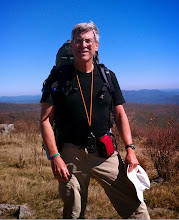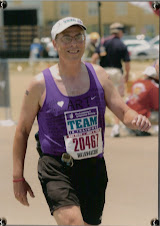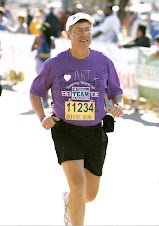In late May, the biopsy confirmed Hodgkin’s lymphoma, lethal a few decades ago and still life threatening, but now one of the most curable cancers. Several of the non-Hodgkin’s lymphomas cannot currently be cured, and my wife Mary and I were very grateful that I had the Hodgkin’s variety. Someone hearing us shout for joy in the car on the way home about having this type of cancer would have thought that we were nuts! I started chemotherapy within 2 weeks of the biopsy results. It consisted of 36 treatments of 4 nasty drugs spread out over essentially 6 months. I was told that, even though the cancer had spread from the chest to the abdomen and was considered stage 3 (of 4 stages), I had an 80% chance of recovery – outstanding when you are talking cancer. The treatments were rigorous and made me feel very ill over long periods of time, but they saved my life and were tolerable if you take life a day at a time instead of thinking “6 months”!
After three months, one of the chemo drugs was causing lung damage and I ended up in the hospital seriously ill. I decided that this drug had to be discontinued, because the lung doctor felt that further doses would result in me being a pulmonary cripple or dead. I was more scared of being a pulmonary cripple than I was of dying of lymphoma. The oncologist felt that enough progress had been made that finishing with only three drugs would eliminate the estimated 10-20% of the tumor estimated to remain after 3 months.
I finished the chemo after 6 months, and a CT scan confirmed that the tumors were gone, and I returned to work after this point. During chemo, I tried to maintain a good diet to the extent my stomach allowed and I tried to walk for exercise whenever I was able. I am fortunate that the lung damage was caught in time so that it was largely reversed within a few months. I have now been in remission since December, 2002.
In 2005, I participated in the Midnight Sun Marathon in Alaska as part of the Leukemia and Lymphoma Society’s Team in Training to raise money for LLS programs. I looked on this as some serious “giving back in some small measure for what I received” and as proof that we can not only survive cancer, but be strong and accomplish difficult things. Since that time, I have completed the Rock 'N' Roll Marathon in San Diego in 2006, the P.F. Changs Arizona Marathon in 2008, the Country Music Half Marathon in 2009, and the Seattle Half Marathon in 2010 for the same cause, raising over $50,000 for the Leukemia and Lymphoma Society. And in 2011, I walked nearly 60 miles in three days while raising over $8,000 for Susan G. Komen for the Cure, in memory of my sister, Ann. She died in May of that year from this horrible disease.
Although I felt physically awful a lot during the treatment, at no time did I feel angry (the “why me” syndrome) or emotionally devastated about having cancer. I tried to look on it as the luck of the draw, an obstacle to overcome, and an opportunity to grow and become stronger. It has made me appreciate life even more than I did before, and also have more empathy for people who get sick and what they go through. It made me want to do something to help others afflicted by cancers. My main attitude and emotion, then and now, is gratitude for the following:
- That I had a curable form of cancer that was detected before it had taken over my body.
- For the strong and loving support of my wife, Mary, and for the support and help of many family and friends.
- That I didn’t have something much worse than cancer
- That medical researchers and pharmaceutical companies have figured out so much in the last 20 - 30 years about fighting this and other cancers.
- That doctors and nurses choose careers to understand and combat these diseases, and for their knowledge, dedication, and training.
- To God for giving me a good fighting chance and for giving me the positive attitude and courage to fight through this ordeal.
- That I was strong enough physically and mentally to withstand the rigors of the treatment.
- That I worked for a company that thinks enough of their employees to provide great medical and disability insurance benefits, and that stood behind me during the ordeal.
- That I had a good job to go back to once my treatment was over.
- That, even on the really tough days, I could find individual hours and moments when life seemed very good and could be enjoyed.
- To all those who have gone before me and suffered considerably, with courage and often with lethal results, as their doctors worked to learn how to fight these diseases.
- That anti-nausea medications exist, which make the treatments much less difficult than even 10 years ago.
- For any period of time, even a few hours, when I felt relatively well while undergoing the treatment, especially when it meant eating something tasty.
- That my lung damage was caught in time to heal.
- To be alive with the expectation of future good health and the enjoyment of what life has to offer us all.
 This is me, in late June 2002, after a few weeks on chemotherapy. My hair was starting to fall out, and I had gotten a second buzz cut so that it wouldn't be so messy. Little did I know that day that in six years, I would not only be a cancer survivor, but a three time marathoner.
This is me, in late June 2002, after a few weeks on chemotherapy. My hair was starting to fall out, and I had gotten a second buzz cut so that it wouldn't be so messy. Little did I know that day that in six years, I would not only be a cancer survivor, but a three time marathoner.



















